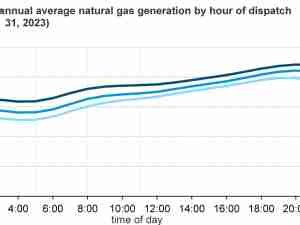Russian refineries’ recovery from Ukrainian drone attacks helped the country’s oil processing to pick up in the second half of February.
The nation processed 5.44 million barrels of crude a day during the Feb. 15-28 period, a person with knowledge of industry data said. That’s 226,000 barrels a day, or just over 4%, above levels seen in the first half of the month, according to Bloomberg calculations based on historic figures.
Almost all facilities hit by Ukraine have brought their processing rates back close to pre-attack levels in the last couple of weeks, said the person, who asked not to be identified as the information isn’t public. The recent refining rates show how Russia has been able to protect key energy sites from constant drone attacks on the nation’s territory.
The last disruptive hit on a Russian oil-processing facility happened on Feb. 9, according to public information.
Still, refinery runs for most of February were almost 4% below December levels, the last full month before the drone attacks, Bloomberg calculations show. For the first 28 days of February, they averaged 5.32 million barrels a day, according to the person.
Kyiv has attacked at least six Russian oil-processing plants since the start of the year as it tries to hamper the country’s oil-product exports and its ability to send supplies to the front lines.
Two major export-focused facilities — Novatek PJSC’s Ust-Luga refinery and Rosneft PJSC’s Tuapse plant — as well as Lukoil PJSC’s Volgograd refinery and the smaller independent Ilsky and Afipsky facilities had to completely halt or reduce operations in the wake of strikes.
Only the Tuapse refinery remained completely offline as of the end of February, according to the person familiar with the industry data. Novatek’s Ust-Luga plant, which resumed operations in the first half of February, in the second half of the month processed as much on a daily average basis as in December. In the second half of February, the Volgograd refinery processed just below the December average, while Afipsky and Ilsky were above those levels.
In addition, Lukoil’s Norsi refinery — which cut processing in January due to an internal incident — raised February processing rates above December’s level.
Rosneft, Lukoil, Novatek and the Afipsky and Ilsky refineries didn’t immediately respond to Bloomberg requests for comments.
Supply Curbs
Acting in line with its OPEC+ allies, Russia at the weekend pledged to deepen oil production cuts in the second quarter, while at the same time slowly raising oil exports. Through the first quarter, the nation’s oil exports are to be curbed by 500,000 barrels a day from the baseline.
In April, Russia’s cut will comprise 350,000 barrels a day of output and 121,000 barrels a day from exports. In May, it will be 400,000 barrels a day of production and 71,000 of exports, while in June the curbs will come from production only.
The production cuts will come on top of an earlier pledge to keep Russia’s output curbed by 500,000 barrels a day through 2024.
Given the gradual improvement in exports over the second quarter, Russia will need to reduce domestic crude consumption to make the output cuts. Its refineries typically go on maintenance from March through May, which may help the Kremlin to keep its pledge.








